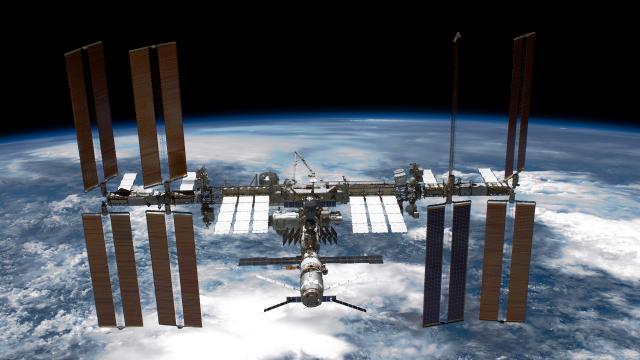No place is safe from the scourge of superbugs, a new study suggests, not even space. According to the study, samples of bacteria resistant to several antibiotics have been found on the International Space Station (ISS). And while the bacteria may not have made any astronauts sick, the authors say it’s pretty likely that they can.
The authors behind the study, published last week in BMC Microbiology, are primarily members of NASA’s Jet Propulsion Laboratory, which is managed by the California Institute of Technology. The laboratory is the major research hub for NASA’s robotic space and Earth science missions, such as the Mars Curiosity rover, and also runs NASA’s Deep Space Network of satellites.
The new study is actually an update to the researchers’ ongoing work. In January, the same team published research looking into the bacterial genetics of samples swabbed from the surfaces of the ISS in 2015. Within these samples, they found more than 100 bacterial genes known to help make bacteria resistant to antibiotics. And strains belonging to a particular species of bacteria, Enterobacter bugandensis, were resistant to all nine antibiotics tested against them.
In this latest study, they hoped to figure out just how dangerous these strains could be to human health. So they compared the genetics of the ISS strains to three strains of E. bugandensis collected back on Earth that had sickened people. The ISS strains had a lot in common with the Earth strains, including genes associated with antimicrobial resistance and virulence (the potential for a microbe to infect a person). Based on these genetic similarities, the team estimated the ISS strains were 79 per cent likely to be disease-causing, or pathogenic.
Given the results, the authors wrote “these species pose important health considerations for future missions.”
Enterobacter bacteria live most everywhere, including in our guts. Typically, they don’t cause illness. But in people with weakened immune systems, such as hospital patients, they can become the source of serious, life-threatening infections. And the recently discovered E. bugandensis is known to cause sepsis — a too drastic immune response to infection that can fatally shut down our organs—in newborns and the elderly.
These opportunistic infections are bad enough, but antibiotic resistance has made them increasingly difficult to treat. And in space, where medical resources are limited and astronauts tend to have weaker immune systems, a potential infection could be catastrophic.
Luckily, the authors say there’s no evidence these strains have caused any disease on board the ISS. And there’s still plenty of work to be done to suss out just how much of a problem these bugs are, as well as whether the conditions of space travel are encouraging their growth or making them more dangerous. One scientist, for instance, has speculated that microgravity might actually make bacteria evolve quicker than they would on Earth, or dampen the germ-killing effects of antibiotics. Future research will have to include experiments directly conducted in space.
“Whether or not an opportunistic pathogen like E. bugandensis causes disease and how much of a threat it is, depends on a variety of factors, including environmental ones,” said senior author Kasthuri Venkateswaran, a research scientist at the Jet Propulsion Laboratory’s Biotechnology and Planetary Protection Group, in a statement. “Further in vivo studies are needed to discern the impact that conditions on the ISS, such as microgravity, other space, and spacecraft-related factors, may have on pathogenicity and virulence.”
